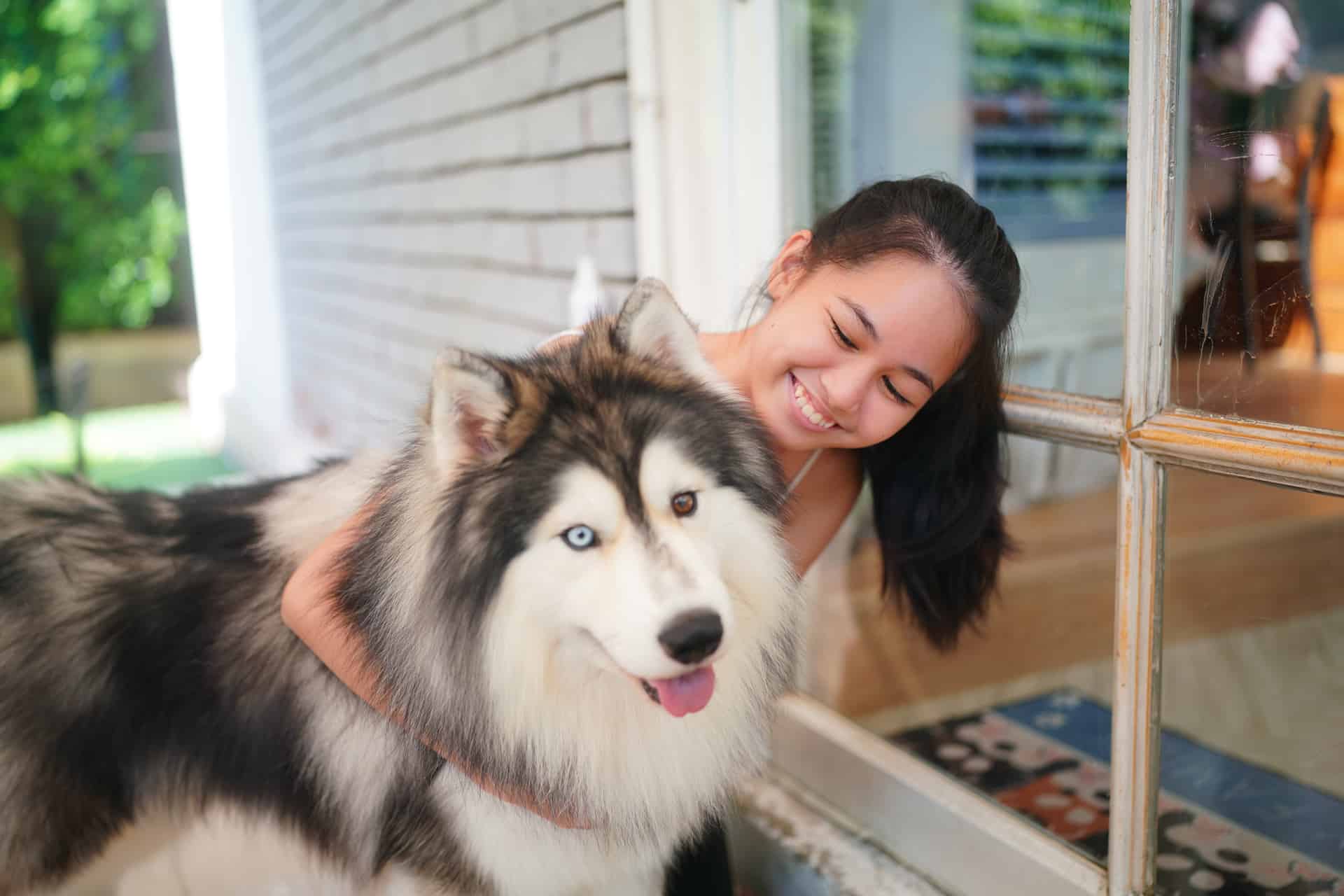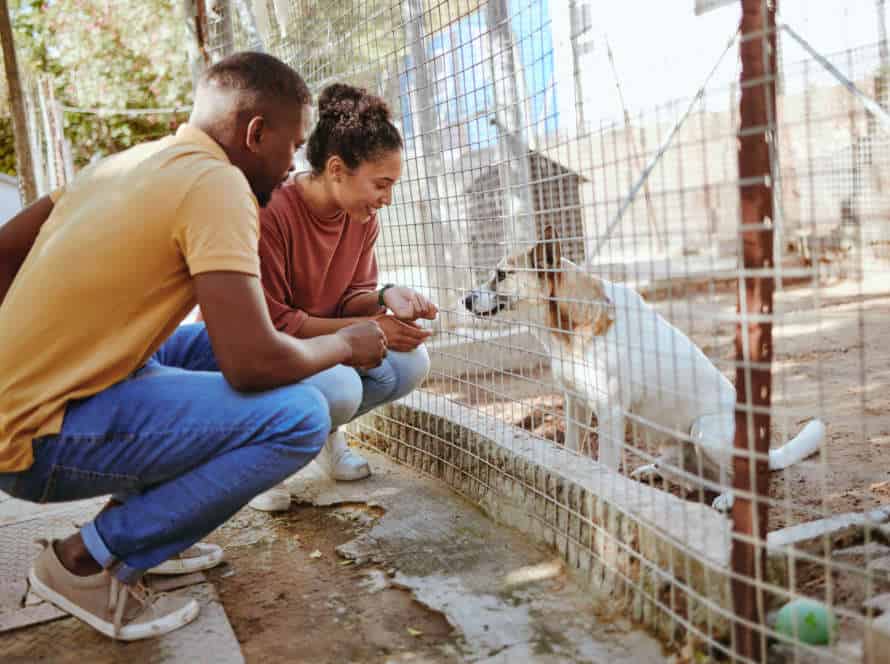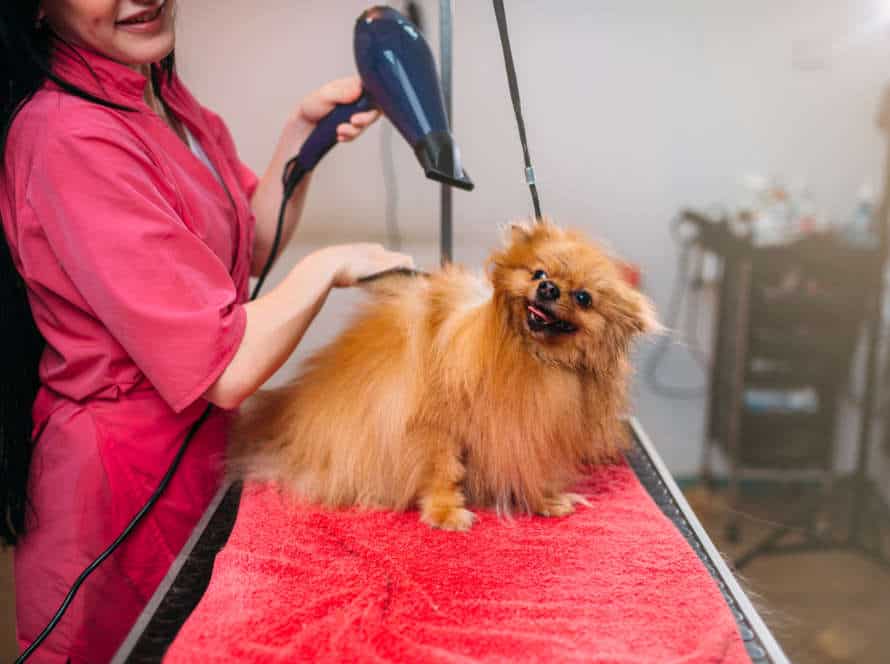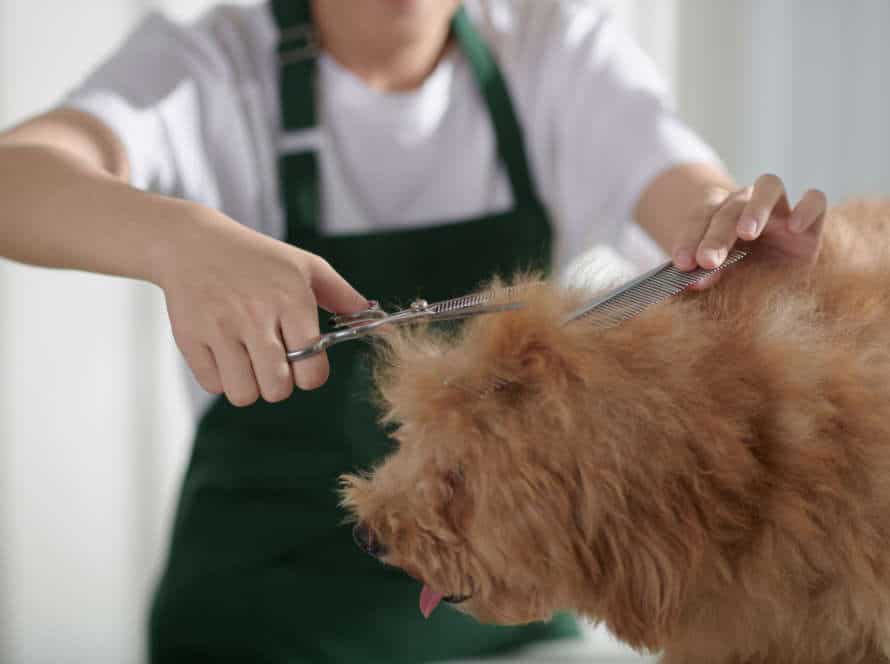Maintaining Trust with Your Senior Dog: A Guide to Success
Trust is key for a senior dog’s wellbeing. Here are tips to keep that trust:
- Be patient. Aging and health may limit them. Understand what they can do.
- Keep them comfy. Make sure they access food and water easily. Also, provide a cozy bed.
- Stick to routine. Dogs love it. It makes them feel secure. Reduce anxiety too.
- Show love. Cuddles, grooming, and playtime. Make time each day.
- Watch for pain signs. Limping? Loss of appetite? See the vet ASAP.
Follow these tips, and your senior dog will live their golden years in bliss!
Pro tip: Elder dogs can still learn! Keep training positive and consistent. It’ll help maintain trust and stimulate their minds.
Understanding the Needs of Senior Dogs
Understanding senior dogs is essential for trust and a good life. As they age, their bodies and minds go through changes, so their care should too. Here are some key points:
- Nutrition: Senior dogs need a balanced diet with fewer calories, more protein and supplements.
- Exercise: Exercise keeps muscle mass, joints flexible, and minds active. But it must be tailored to their abilities.
- Health Care: Older dogs are more prone to health issues, such as arthritis, teeth problems, and thinking issues. Check-ups with the vet are necessary for early management.
- Comfort: Senior dogs need warmth, peace, and no stressors. Soft beds, food and water access, and regular potty breaks help them feel relaxed.
- Love: Senior dogs need more love and attention from their owners. Quality time, mental stimulation and a consistent routine keep trust and your bond strong.
1.1 Common changes in senior dogs’ behavior
As dogs age, it’s normal for behavioral changes. Here are some common ones:
- Lower activity – Senior dogs may not be as interested in physical activity and prefer to rest.
- More sleepiness – Older dogs may sleep deeply and for longer periods.
- Appetite changes – Older dogs may lose interest in food or eat less.
- Cognitive decline – Senior dogs may become disoriented, forget house training, and act differently.
- Arthritis – Older dogs may get arthritis, which can cause pain and stiffness, and reduce mobility.
It’s essential to understand and anticipate these changes to keep trust with your senior dog and provide them with the care and attention they need as they age.
1.2 Health concerns for senior dogs
Senior pooches need special care for their wellness troubles. They are more liable to certain health matters, due to their advanced age. Here are the most common issues:
- Joints: Arthritis & other joint problems can cause ache, tightness & movement difficulties.
- Teeth: Years of use can lead to decay, gum illness & loss of teeth.
- Vision & Hearing: Just like us, dogs can experience deafness & blindness. This can affect their lifestyle & make it hard to move around.
- Fatness: Inactive senior dogs can gain weight & become obese. This can bring other health troubles.
It’s essential to work with your vet to check & look after any health matters that occur. Good care & focus can help guarantee a happy & healthy life for your senior pup!
1.3 Providing comfortable living arrangements
As your pup grows older, it’s super important to make sure they have a comfy place to live. Here’s some helpful advice to ensure your senior dog is happy and healthy:
- Give them a soft, cosy spot to sleep, away from cold drafts.
- Make sure their bed is in a quiet area, so they can get a good rest.
- Keep their food and water nearby to avoid any mobility issues.
- Don’t change their routine, environment or diet abruptly – it might cause stress.
By making sure they have a comfortable home, you can keep your pup content and maintain your bond.
Building Trust with Your Senior Dog
Building and keeping trust with your senior pooch is essential for a joyful and healthy bond. It takes patience, constancy, and an understanding of your dog’s individual needs and behaviours. Here are some tips to assist you in constructing and retaining trust with your senior dog:
- Be consistent with your regimes and commands. Pups flourish with predictability and a steady routine can help them feel safer and less distressed.
- Employ positive reinforcement training techniques. Honor great behaviour with snacks, applause, and fondness. Keep away from punishment or animosity, as it can hurt your dog’s trust in you.
- Respect your dog’s limits and needs. Let them have their area and decide when and how they converse with you. Grasp their restrictions and modify your outlooks accordingly.
- Frequently spend quality time with your dog. Take part in activities they relish, such as walks, playtime, or cuddles. This will aid in deepening your relationship and reinforce your trust.
- Recall that building and preserving trust with your senior dog is a continuous activity. By following these tips and adjusting to your dog’s altering needs, you can make a solid and caring relationship that will last forever.
2.1 Maintaining familiar routines
Sticking to a routine is super important for keeping trust with your older pup. As they age, senses, movement, and thinking might not be as sharp. Familiar routines give them predictability and steadiness, lowering stress and giving them a sense of security.
Here are some tips:
- Set a regular eating time.
- Stick to a schedule for walks and exercise.
- Keep praising good behavior.
- Always use the same cues and commands.
- Make any changes needed, but keep the structure of the routine the same.
By having a familiar routine, your senior dog will feel safe, secure, and loved.
2.2 Using positive reinforcement training
Positive reinforcement training is an awesome way to keep trust and get great results with your elder pup. It rewards good behavior, rather than punishing the bad. Here are some tips to help:
- Use small, healthy treats for rewards.
- Cheerfully praise and show physical love.
- Keep the training short and fun, to avoid overloading.
- Be consistent in commands and expectations.
- Remember to recognize small improvements.
By using positive reinforcement, you can make a stronger connection with your senior dog and keep the trust, while also tackling any bad behaviors.
2.3 Providing mental and physical stimulation
Senior dogs need mental and physical stimulation to stay healthy and trust their owners.
Puzzle toys, scent games, and obedience training are activities that engage the dog’s brain. These activities can help senior dogs avoid decline and give them a sense of achievement.
Physical stimulation includes exercises for their heart, strength, and flexibility; like brisk walks, gentle hikes, and swimming. Low-impact activities like these can keep senior dogs active and reduce joint pain.
By giving your senior dog mental and physical stimulation, they will trust you and live a happy life in their old age.
Managing Health Concerns in Senior Dogs
As your pup ages, take care of their health! Here’re some tips to build trust and manage health issues:
- Get semi-annual vet check-ups.
- Adjust their diet, which can help with obesity, diabetes, or kidney disease.
- Low-impact exercises help keep muscles and joints healthy.
- Consider pain management strategies for arthritis and joint pain.
- Grooming and skin care for dry skin, hot spots, or matted hair.
Prioritize your pup’s health needs for a happy and healthy retirement!
3.1 Regular veterinary check-ups
Regular vet check-ups are musts for keeping your old pup healthy and happy. As dogs age, they become more susceptible to health issues such as arthritis, dental issues, and kidney disease. These can be spotted early through regular vet visits.
On check-up, your vet will examine your pooch’s eyes, ears, teeth, and fur for anything abnormal. They will also check their heart rate, breathing, and weight, and may suggest further tests if needed.
By arranging regular check-ups for your senior pup, you can make sure any health issues are spotted and treated quickly, improving their quality of life in their golden years.
3.2 Proper nutrition for senior dogs
Your beloved pet’s golden years require special attention to their diet. Here are top tips to keep them healthy:
- Reduce calories. Senior dogs need less energy than younger ones, staying slim prevents health issues.
- Increase fiber and protein. Fiber helps digestion and protein keeps muscles strong plus a healthy immune system.
- Add supplements. Glucosamine and omega-3 fatty acids help with joint pain, vision and other issues.
- Check with the vet. Depending on breed, weight and health, dietary needs differ. Regular checkups guarantee your pet stays happy and healthy.
3.3 Managing pain and discomfort
As our pooches age, they may suffer from pain and uneasiness which can reduce their quality of life. Here’s how to help manage discomfort in senior dogs to build trust and enhance their wellbeing:
- Recognize the signs of pain, such as sluggishness, loss of appetite and not wanting to move or frolic.
- Consult your vet about pain relieving solutions like supplements, meds and physical therapy.
- Alter your senior dog’s environment to limit strain on their joints, e.g. add ramps or steps to access furniture or use non-slip flooring.
- Give regular exercise to keep muscles and joints strong. Low-impact activities, like swimming and short walks, can help.
- Offer a comfortable and supportive sleeping zone. Orthopedic beds can help relieve joint pain.
By taking steps to manage discomfort in senior dogs, you can boost their quality of life and maintain their trust in you as their caregiver.
Keeping Your Senior Dog Safe and Happy
Ensuring your aged pup’s safety and cheer is vital for their general well-being. To make sure your senior dog is content and secure, here are some tips:
- Be compassionate and understanding of their age-related restrictions.
- Maintain their weight and joint fitness with a healthy diet.
- Provide a comfy and secure environment, with bedding and easy access to food and water.
- Regular vet check-ups to keep an eye on their health and spot any problems quickly.
- Be reliable with training and rewards to prevent anxiety and promote good habits.
- Spend meaningful time with them, doing gentle exercise and play and demonstrating love and care.
By following these guidelines, you can keep an excellent bond with your senior pup and give them a safe and joyful life.
4.1 Adjusting exercise routines
As your furry friend ages, it can be tough for them to exercise as before. Therefore, adjusting exercises is key to keep them fit and healthy. Here are some tips:
- Shorten and reduce the intensity of their daily walk.
- Rather than long runs or intense playing, go for low-impact activities like swimming or fetch.
- Buy toys that make them move, like puzzle toys, treat balls, and tug ropes.
- Be aware of signs of exhaustion, pain, or unease. Adapt their exercise routine and see a vet if needed.
- Bear in mind, to maintain the trust and bond with your senior dog, a balance between exercise and rest is important.
Tip: Give your senior pet regular massages to ease discomfort and promote relaxation.
4.2 Making modifications to the home environment
As dogs age, their physical abilities may change, so you must modify their home environment. Here are tips to trust your senior pup:
- Install ramps or pet stairs for your dog to access beds or couches safely.
- Use non-slip mats or rugs for traction.
- Provide good lighting in areas your dog hangs out.
- Baby gates help stop access to stairs and balconies where your dog could fall.
These changes make a big difference in your senior pup’s life. They help keep their independence and your trust as their caregiver!
4.3 Coping with the end-of-life process
Coping with the end-of-life of your senior pup can be tough and tear-filled. Yet, it is vital to make their last moments as relaxed and respectful as can be. Here are some things to think about:
- Monitor your dog’s physical and emotional state, and chat with your vet about pain-management and medicine options.
- Make a cozy space for them, with soft bedding and easy access to food, water, and outside.
- Spend quality time, like walks, cuddles, and playtime.
- Maybe get help from a pet-loss support group or a counselor to help you with your emotions during these hard times.
Remember, you have given your dog a life full of joy and love. Show them love and kindness during their last days.
Conclusion: Maintaining Trust and a Lasting Relationship with Your Senior Dog
Ultimately, to keep trust and a long-term relationship with your aging pup, you need patience, understanding, and dedication to their transforming needs. As they mature, they may experience physical and intellectual deterioration, which can cause behavioral and emotional modifications. To maintain a sound and dependable bond with your elderly dog, it’s essential to:
- Supply them with tender and consistent care.
- Watch their health and settle any problems speedily.
- Alter their habitat to fit their altering abilities.
- Stay active with them through activities that boost physical and mental activity.
- Patiently understand their changes in behavior and emotions.
Keep in mind that your senior pooch has been with you through all of the good and bad times, and upholding trust with them in their older years is key for their overall welfare. Tune into their requirements and give them the attention and care they deserve, and you both will relish a cheerful and strong relationship.
Frequently Asked Questions
1) How can I maintain trust with my senior dog?
Maintaining trust with your senior dog involves providing routine care, spending quality time with them, and respecting their limitations as they age. You should also be consistent with training and establish a healthy communication style.
2) What are some common signs of trust issues in senior dogs?
Some signs that your senior dog may be experiencing trust issues include avoiding eye contact, growling or snapping, hiding or avoiding you, and displaying sudden changes in behavior.
3) What should I do if I suspect my senior dog has trust issues?
If you suspect your senior dog has trust issues, it’s important to build their trust gradually by spending quality time with them and being patient. Avoid any actions or behaviors that may make them feel threatened, and consider working with a professional dog trainer or behaviorist.
4) How can I establish a healthy relationship with my senior dog?
To establish a healthy relationship with your senior dog, you should provide regular exercise, routine care, and affection. You should also respect their limitations as they age and communicate with them in a calm and gentle manner.
5) Can I still train my senior dog?
Yes, you can still train your senior dog. However, it’s important to keep in mind that their physical and mental abilities may be limited as they age, so you should adjust your training techniques accordingly.
6) What should I do if I notice any changes in my senior dog’s behavior?
If you notice any changes in your senior dog’s behavior, it’s important to talk to your veterinarian to rule out any underlying health issues. You may also want to consider consulting with a professional dog trainer or behaviorist to address any behavioral concerns.







